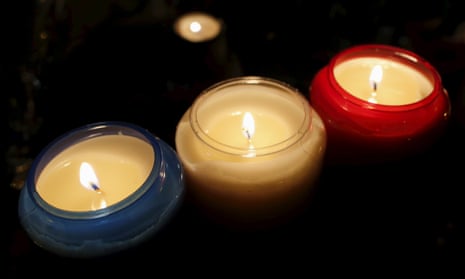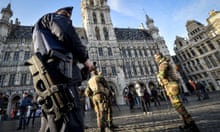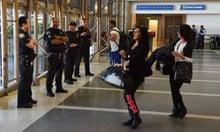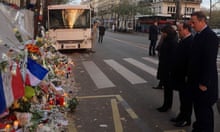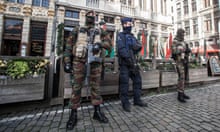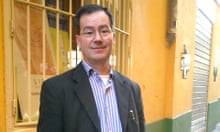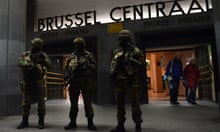While it is invidious to rank the bombings and shootings in Paris that killed 130 people against other terrorist attacks, it is undoubtedly one of the most serious in Europe in recent years.
For any news organisation to give full and appropriate coverage to acts so devastating is a challenge. As with 9/11 in the US or 7/7 in the UK, reporting is likely to look beyond the physical blows to many other parts of the nation’s life.
There are aspects of the substantial coverage given by the Guardian to the attacks that I think show an interesting shift in both the journalism and how it has been received by readers, especially online.
I think it is significant that at the time of writing the readers’ editor’s office has received a relatively small number of emails commenting on the coverage, just 70. These have certainly included complaints – I will return to them later – but many were simple observations, suggestions or even praise.
Some of the complaints were from people who received a Saturday paper that had no news of the events in Paris the night before. The first reports came through too late for our first edition, which is printed at around 9pm for the west country and Scotland. As the scale of the attacks became apparent we ran a special “slip” edition at 11pm, and by the end of the night 63% of all the papers we printed carried coverage of the attacks. We sold 10,000 extra copies on Saturday.
At the heart of the online coverage has been the live blog, a technique of telling a story that fuses original reporting, aggregated news and comment, which can appear too breathless if not written with care and restraint.
“Never wrong for long” is not an appropriate maxim when millions of people are seeking reliable information in a fog of rumour and claim alongside counterclaim.
A series of daily live blogs rotated around the clock through Guardian offices in London, New York and Sydney. A crucial aspect of the way they were approached was the clear delineation between what was actually known and what was being reported but was unverified.
The live blogs ran continuously for a week after the attacks, and the response from readers was extraordinary. On Friday 13 November, the night of the attacks, between the initial post at 9.24pm and midnight (UK time) the first live blog was responsible for 2.7m page views. It went on to achieve another 4m page views on the Saturday – when there were a total of 13m page views for 75 items of content on the Paris attacks launched that day.
Readers’ suspicions are often aroused when comments are not opened on a story. Very few stories about the Paris attacks had comments enabled over the weekend. This was because there were very few moderators and, regrettably, a considerable number of people who wanted to leave Islamophobic comments, alongside the many others who wanted to engage in legitimate debate. More than 2,500 comments were posted on an early opinion piece by Natalie Nougayrède.
Photographs are, of course, another sensitive issue. By Saturday the staff on the picture desk were reviewing 13,300 images. Roger Tooth, the head of photography, said: “We did our best to avoid bodies, and pixelated two faces of victims. We did avoid using video of a body being dragged along an alley next to the club.”
On the Opinion pages, one factor taken into consideration was timing – judging when readers would be willing to engage with an idea that in the first 24 hours after the attacks may have jarred. The idea that these horrific attacks have causes and that one of those causes may be the west’s policies is something that in the immediate aftermath might inspire anger. Three days later, it’s a point of view that should be heard.
Among the complaints were some good points, many of them about language. For instance, several readers objected to the use of the word “mastermind” to describe Abdelhamid Abaaoud, as it appears to celebrate his achievements. I agree. Others were concerned that we had given insufficient prominence to the bombings in Beirut on 12 November, which killed 43 people.
One reader was disappointed that a feature on the Muslim victims of the attack opened with this sentence when it was first published on the web: “Their Muslim faith did not spare them from the terrorists’ bullets.” The reader wrote: “I wonder what the writer was trying to convey in the lead. Surely this was not a selective attack, and surely it was not the intention of the attackers to only kill people of one faith. Victims of terror always come from a wide cross-section of society, it hurts and hits everybody. So while you would be right to carry a story saying Muslims also were among those killed, in my view it’s a bit insensitive to say their faith did not or could not save them. They were surely not hoping it would, and I guess we know that it doesn’t.”
I agree, and so did editors when the point was made to them. That line was removed within hours and was not in print editions.
Journalists naturally want to be first with the news, but they have to balance that urge with the restraint necessary to separate fact from speculation, especially in a digital age. So far, I think the Guardian has done a good job in showing that restraint.
